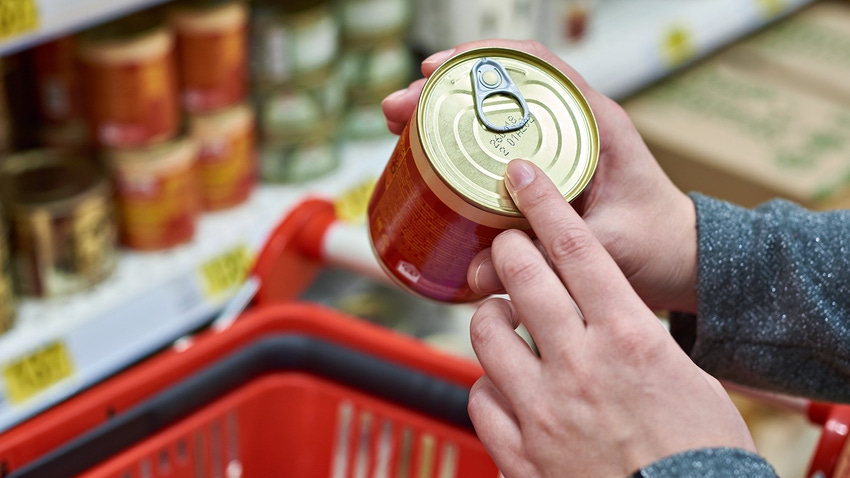Report: Consumers switch food brands for better shelf life
A new study by Kerry highlights consumers’ strong preference for food products with longer shelf life to reduce food waste, with findings indicating a willingness to switch brands and embrace natural preservatives in pursuit of this goal.

At a Glance
- Consumers prioritize longer shelf life in food products to reduce food waste.
- Consumers are open to natural preservatives but skeptical of artificial ones.
- The desire to minimize food waste is a top priority for consumers, leading many to adopt new shopping patterns.
A new report from Kerry found shelf life is important to consumers. In fact, a third of the survey respondents said they would switch to a food brand that offers better shelf life.
Based on the findings of the report, consumers are apt to seek out products with a longer shelf life because they don’t want to waste food. In fact, Kerry reported 72% of respondents said they feel that extending the shelf life of a product would help them reduce waste.
Food waste is a top priority for consumers. A whopping 98% reported they’re actively trying to reduce food waste, Kerry’s data show. What’s more, 91% of consumers said they’re adopting new shopping patterns to reduce food waste. In addition to switching brands, the methods they’re opting for include purchasing smaller quantities and reading expiration dates before they make a purchase.
Another route consumers have taken to reduce food waste is to purchase more frozen versus fresh foods, a different study found.
The No. 1 motivation behind the drive to waste less food is the desire to save money. The majority (70%) of Kerry’s respondents selected money as the reason they want to decrease food waste. In addition, 59% cited a concern for the environment, 52% cited guilt over wasting food when some people are hungry without access to food, and 46% pointed to their overall lifestyle and/or upbringing.
Importantly, consumers acknowledge the role of food formulation in increasing the longevity of food products. Kerry’s report found 69% of consumers expressed an inclination to purchase products that are formulated to reduce food waste.
What’s more, they understand that preservation plays a key role in keeping products stable on the shelf and in their homes for longer periods. Nearly three-quarters of consumers (74%) said they consider preservatives to be important when making food purchases.
For food and beverage product developers, however, food preservation has been increasingly challenging to tackle. That’s because consumers have veered away from artificial preservatives and have increased demands for foods and beverages that contain natural preservatives.
Kerry’s report reflects this trend. Most respondents (82%) said they’re agreeable to natural preservatives, while only 50% of consumers said they’re open to purchasing products with artificial preservatives.
“Our research clearly demonstrates that consumers have a strong desire to reduce food waste in their own homes, and they increasingly recognize the role of preservation in achieving this goal,” Bert de Vegt, VP of food preservation and protection at Kerry, said. “As inflationary pressures remain, preventing products from going to waste has become more crucial than ever.”
About the Author(s)
You May Also Like






